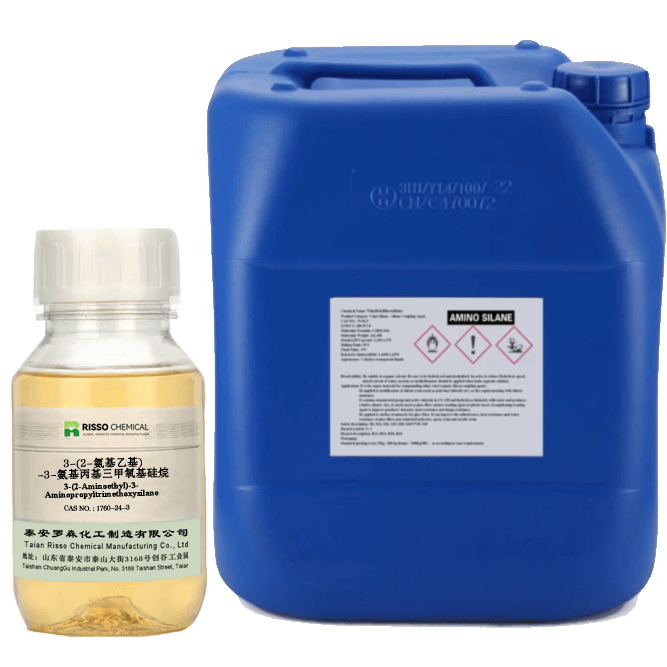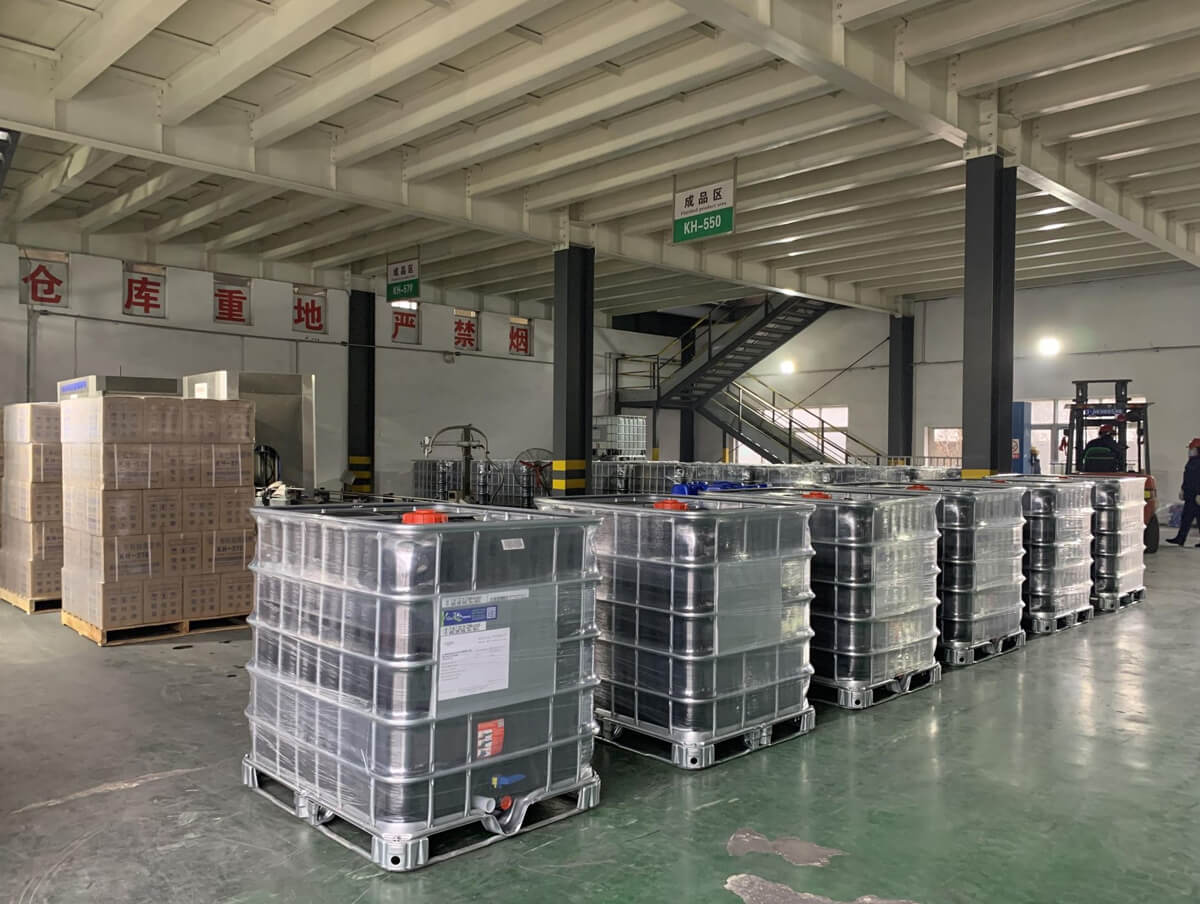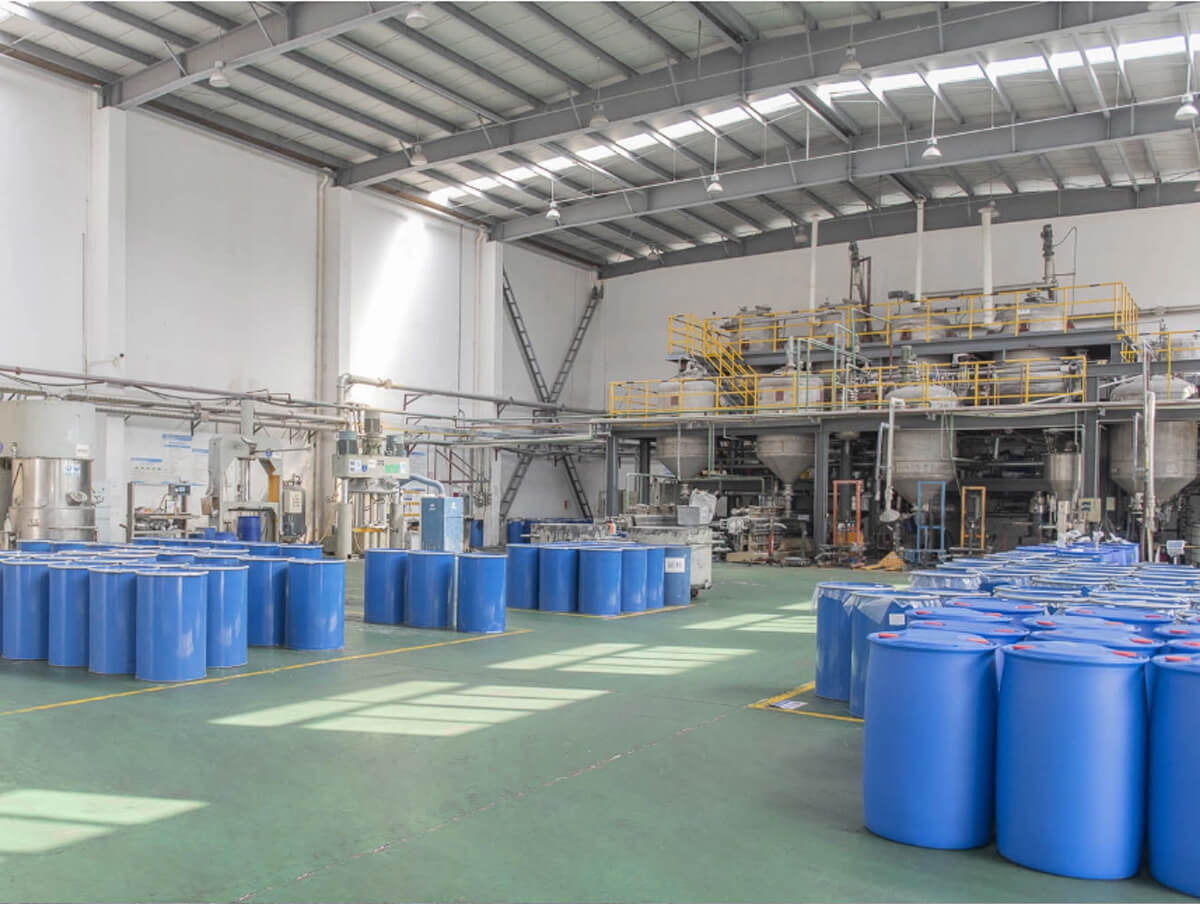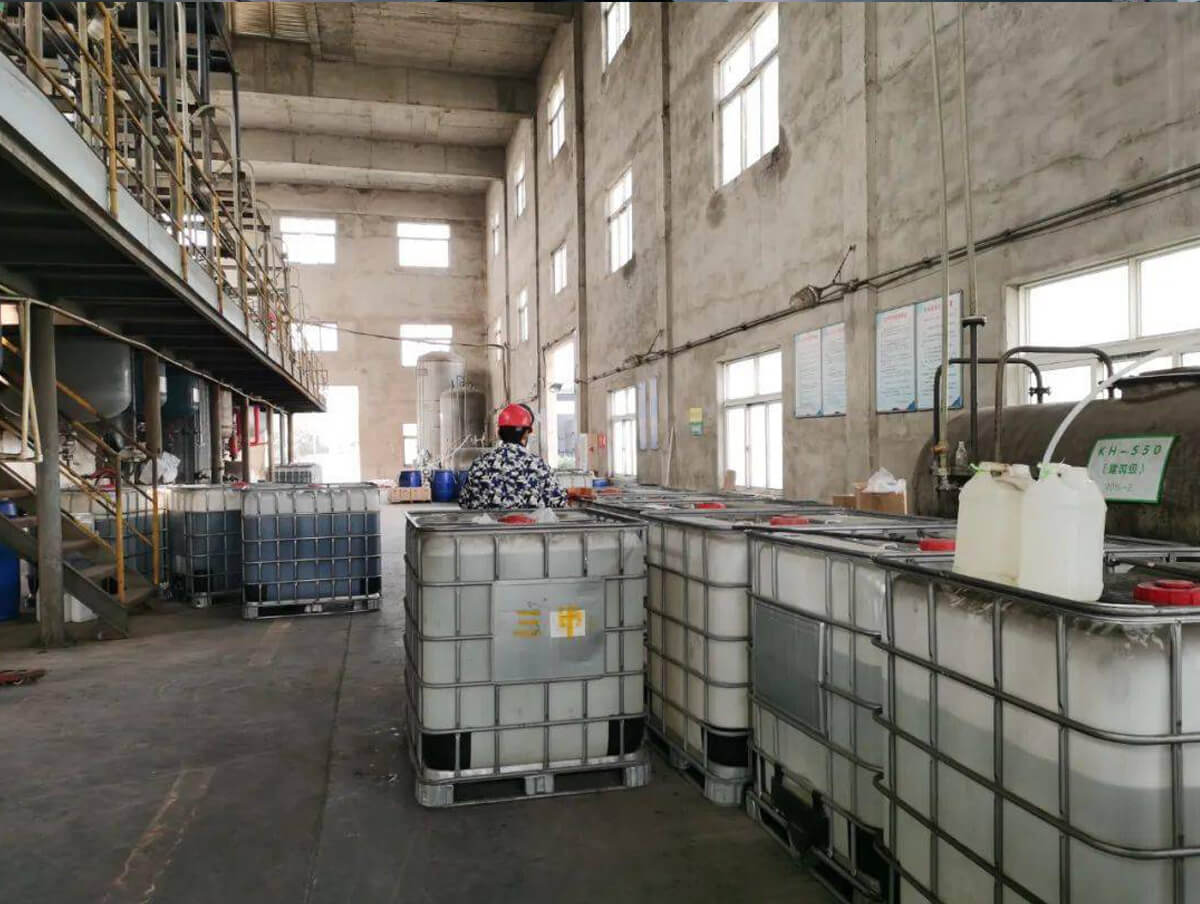
3-(2-Aminoethyl)-3-Aminopropyltrimethoxysilane
| Chemical Name: | 3-(2-Aminoethyl)-3-Aminopropyltrimethoxysilane |
| Product Category: | CAS 1760-24-3 Amino Silane– Silanes |
| Structural Formula: |  |
| CAS No.: | 1760-24-3 |
| EINECS: | 212-164-2 |
| Molecular Formula: | C8H22N2O3Si |
| Molecular Weight: | 222.14000 |
N,N-Dimethylpropylenediaminopropyl methyldimethoxysilane
3-(2-Aminoethyl)-3-Aminopropyltrimethoxysilane(CAS 1760-24-3) is a colorless and transparent oily liquid. It can improve adhesion and various mechanical strength of mixed material (dried or wetted), especially to wetted electric properties.
CAS 1760-24-3 silane mainly improves the performance of epoxy and phenolic, trimericcyanamide, furan resin. It has effect on polyester and polypropylene, polyethylene, organic silicon, polyamide, polycarbonate, polyvinyl chloride.
It is glass fiber lubricant. It is extensively adapt to pearls of glass, carbon white, tale mica, pottery clay, clay, etc.
| Equivalent Product Name | Dow Corning Z-6436, Wacker GENIOSIL GF95, Degussa 1411, ShinEtsu KBM-602, Chisso S310,Silane coupler KH-602; |
| Equivalent Chemical Name | 3-(2-Aminoethylamino) propyl-dimethoxymethylsilane; 3-(2-Aminoethylamino) propyldimethoxymethylsilane;HD-103; |
| Physical Properties | Colorless to yellowish transparent liquid,soluble in many common organic solvents such as ethanol, aether, toluene, dimethylbenzene etc. Easily hydrolyzing after damped. |
| Chemical Properties | RS-A202 N(beta-aminoethyl) gamma-amino propyl methyl dimethoxy-silane, is diamino functional silans that may be used over a broad range of applications. They are used to promote the adhesion of amino-reactive resins such as silicone, salivated polyurethane, two-part urethanes and two-part epoxies to inorganic surfaces, plastic surfa |
| Appearance | Colorless to yellowish transparent liquid |
| Refractive index(n25D) | 1.4400~1.4550 |
| Density(25°C),g / cm3 | 0.965-0.975 |
| Boiling Point | 232°C |
| Flash Point | 93°C |
| Dissolvability | It is soluble in solvents, such as ethanol, ether, acetone, toluene and xylene etc, and easy to be hydrolyzed when get damp. |
| Purity | 98% |
| Uses | This product is a kind of super-soft finishing agent for various organosilicon, by which the modified silicone oil would get greater fiber affinity, and then obtains features of soft, smooth, pendulous, anti-static, washable and anti-crease etc. It can be used in silane curing and polysulfide sealant (gets). And the single/double component can couple ( penetrate) with silicone (polysulfide) sealant to improve the adhesion to base materials (cement. copper and glass etc.), in light color and arising curing bubble. Be used in phenolic aldehyde and epoxy resin to improve the intensity of composite materials and wet electric property under the condition of low frequency. |
| Hazardous |
|
| Transportation & Safety info |
|
| Packaging |
|
| Sample |
|
| Inventory items |
|
| Price |
|
Packaging Specifications


Jessica G.
Get in touch to Get
- Quick and helpful reply within 8 hours;
- Tailored solutions provided for your project;
- One-stop purchasing service.
CAS 1760-24-3 Amino Silane: Guide
The full chemical name of CAS 1760-24-3 Amino Silane is 3-(2-Aminoethyl)-3-Aminopropyltrimethoxy ilane.It is a clear, colorless, strongly alkaline liquid with smell being very sensitive to hydrolysis. The chloride content ranges in the lower ppm-level.
CAS 1760-24-3 Silane is diamino functional silane, can be used as adhesion promoter at organic/inorganic interfaces, for modification of surfaces (corrosion prevention, component of primers) or silicone-polymers or as crosslinker ( moisture crosslinking of polymers).
The application as coupling agent leads in general to an improvement of mechanical and electrical product properties above all under exposure to heat and/ or moisture.












